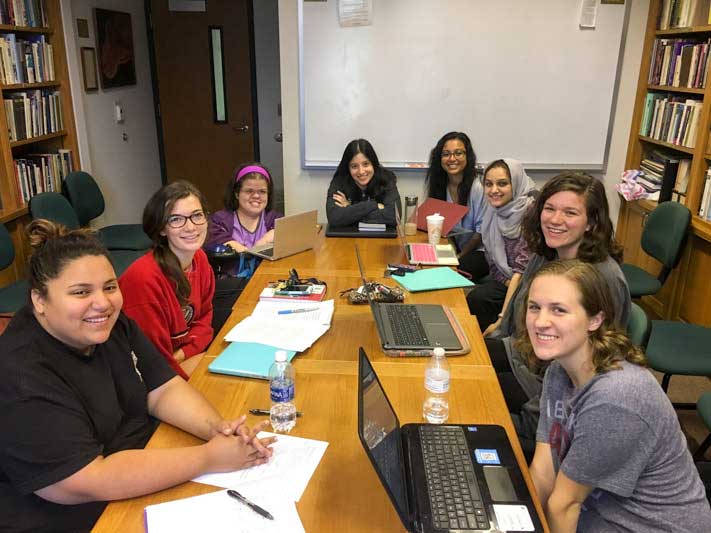Pushing Boundaries: Meredith Psychology Undergraduates Take On Research
- Published

Meredith College offers undergraduate students the opportunity to participate in collaborative research projects that involve students and faculty from across campus. Celebrating Student Achievement Day, summer research stipends, and research and travel grants allow students to present and participate in many research initiatives. Students are also encouraged to attend nationally recognized conferences to share their findings.
This semester, several psychology students have taken on the task of conducting their own research and have worked together in a research group that has met every Tuesday morning. Students in the research group are McKenna Rider, ’17, Christine Cormier, ’18, Shannon Stancu-Goldberg, ’18, Rana Asfaur, ’18, Amanda Oakes-Foalima, ’18, Lindsey Kalish, ’18, Aly Mann, ’17, and Dani Estes, ’18.
“Researching at Meredith allows a safe place for students to explore and meet challenges while being supported by both faculty and peers. Conducting research is not an easy process, but the opportunity to begin as an undergraduate student develops those skills early in an environment that encourages exploration,” Mann said. Mann’s research is a continuation of the Meredith Emerging Adulthood Longitudinal Study (MEALS) that began in 2002.
Oakes-Foalima is still in the beginning stages of her research and undecided on her topic. However, that is not holding her back from exploring her options.
Even though conducting research can be a daunting task, Stancu-Goldberg has learned that the key to success is time management. “Working in the research group prevented me from procrastinating. It’s so important to perform research as a student so we can learn from the hands-on experience,” she said. Stancu-Goldberg’s research is on studying abroad and cross cultural adaptability.
Students are often encouraged to do research in their undergraduate classes. Asfaur was inspired by her Child and Adolescent class. “In the class, I learned that parenting styles are not clearly definable and there are so many factors, so I wanted to see what correlates from parenting styles to the way a child develops,” she said. Asfaur is conducting research on parenting styles and academic performance.
Rider is studying how students perceive the impact of cellphones within the classroom. She chose this topic through personal experiences of cell phone policies and technology developments. “Peer support from this group and the constructive criticism has helped me develop,” Rider said. “Sometimes getting stuck in the rut is helpful to shape your research.”
Cormier has found studying literature reviews and statistics to be the most enjoyable part of her research project. She is researching the development of social interactions of those with Short Stature Skeletal Dysplasia. “Working in the research group has helped me to develop my communication skills and how to implement information I learn from class to my research,” said Cormier.
Kalish was given advice that helped her along her journey. “I was told to find a planner strictly for research and do something small every single day to push us further in our research,” Kalish said. “By having a separate notebook, it aids in avoiding becoming overwhelmed by seeing too many tasks at once.”
Estes is conducting research on how peer attachment relates to the ease of college transition. Her favorite thing about this project is that she sees herself in the research. “I identify with the shift of attachment from parents to peers and I enjoy reading about other people who are going through the same transition that I am,” said Estes. “I also enjoy the feedback I receive from my research group. It’s affirming to have others invested in what you’re studying.”
The students will be presenting their research on Celebrating Student Achievement Day in April.
By Taylor Lynn Moore, ’17
News Director
316 Johnson Hall
(919) 760-8087
Fax: (919) 760-8330


3800 Hillsborough Street Raleigh, NC 27607-5298 | (919) 760-8600 Fax: (919) 760-8330 | © 2022 All Rights Reserved.